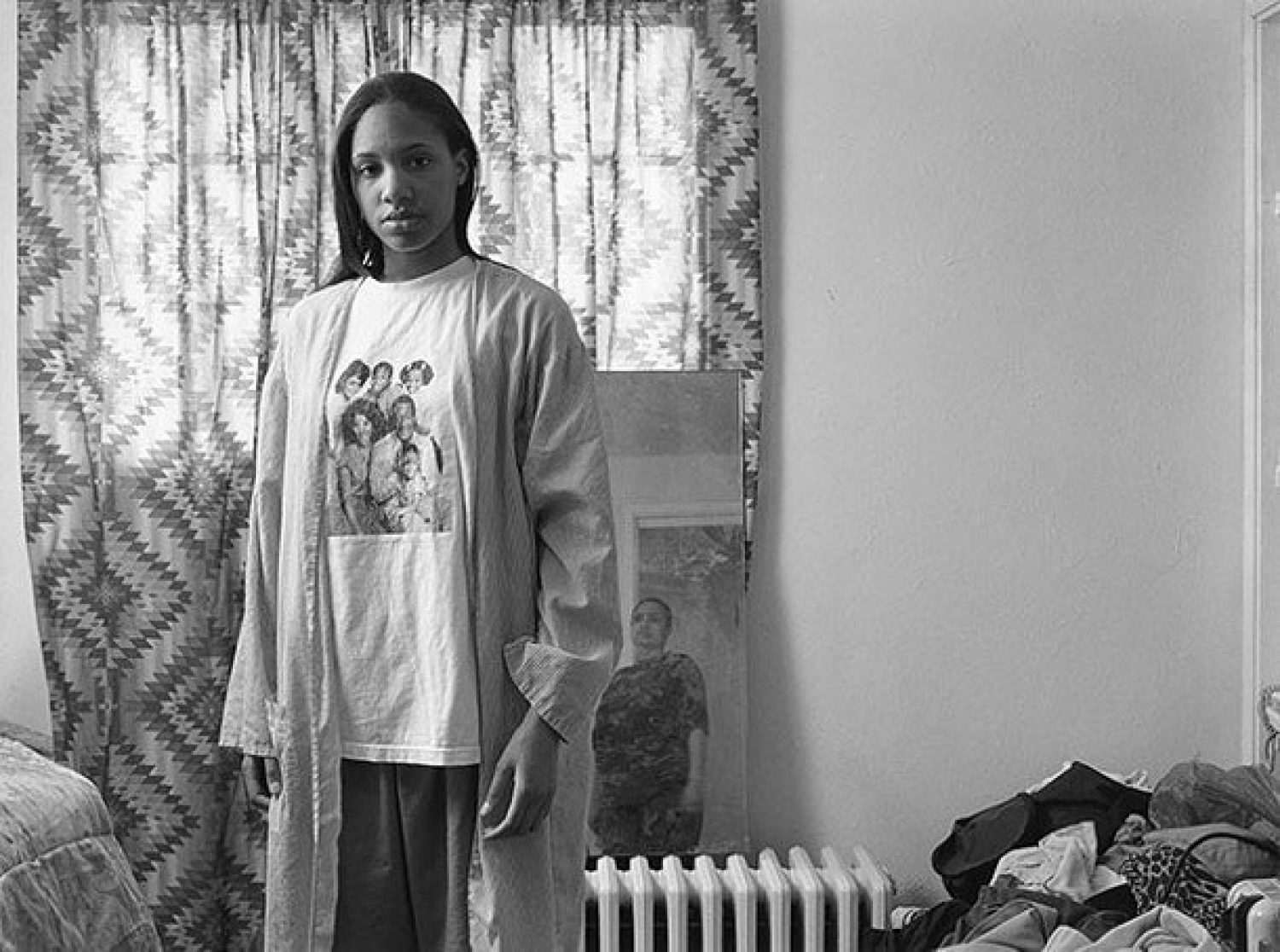Sep 22–Nov 18, 2017
Silver Eye Center for Photography
Silver Eye presents a selection of LaToya Ruby Frazier’s seminal series The Notion of Family at it’s Penn Avenue gallery. Frazier’s images explore the painful effects of decades of industrial decline, poverty, and systemic racism in her hometown of Braddock, PA. A working class town situated on the bank of the Monongahela River, Braddock’s economy had been rooted in industry since Andrew Carnegie built the Edgar Thomson Steel Works in 1873. A child of the 80s and 90s, Frazier grew up when most of the steel industry had left the region and the War on Drugs decimated her community. Frazier came to use photography and art as a way to question inequality and reclaim history.
The Notion of Family elegantly shifts from images steeped in the humanist documentary traditions of artists like Gordon Parks and Walker Evans, to the conceptual and activist practices of artists like Martha Rosler and Allan Sekula. Frazier’s photographs artfully chronicle life in Braddock for over a decade, capturing its historic industrial beauty and its deterioration, such as with her elegiac images of the closure and destruction of the UPMC Braddock Hospital, the town's largest employer at the time.
The emotional anchors of this series are the deeply felt, intimate portraits of the artist, her mother, and her grandmother. These women represent three lifetimes in Braddock--each generation faced with its own set of dramatic changes in the culture and industry of the region. Through artful composition, these portraits poignantly contrast Frazier with her matriarchs, her family with portrayals of Black identity in the media, and their bodies with the town of Braddock. Frazier also photographs her family's living spaces, paying homage to relics of domestic life, and capturing a heartbreaking loss that mirrors the town outside.
Participating Artist
LaToya Ruby Frazier (b. 1982) works in photography, video, and performance in order to build visual archives that address industrialism, rustbelt revitalization, environmental justice, health care inequity, family, and communal history. She received the John D. and Catherine T. MacArthur Foundation Fellows Award in 2015. Her work is exhibited widely in the U.S. and internationally.
